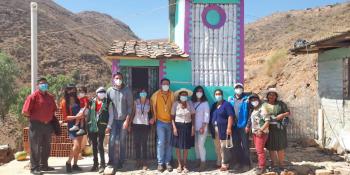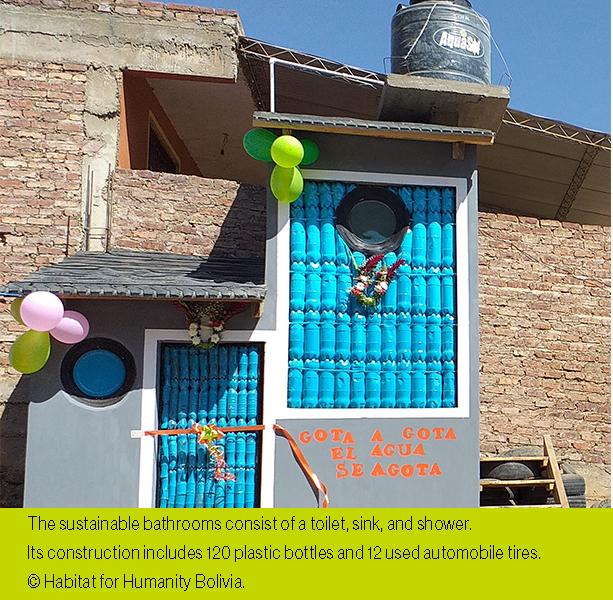
Clean water at home
Clean water at home
Every time Guadalupe or one of her children needed access to water, they had to walk to the nearest river to bathe or collect some to bring home. She and her family live in District Nine, in Cochabamba, Bolivia, a peri-urban area of the country where the lack of access to potable water is significant. This is particularly true in informal settlements, where water is mainly provided by small tanker trucks known as aguateros.
Even when Guadalupe would manage to save enough money to buy water, the aguateros would charge a per-liter price that was more than eight times over market value. Further, the quality of the water was inadequate, as it came from non-potable sources and was not properly stored.
“We would go to the river because we had no bathroom [in our home]. My kids would fall because the rocks were slippery. My daughter can’t see very well and would come home with her knees all torn up. I prayed to God, ‘Please, I need a bathroom,” Guadalupe explains.
Many Bolivian families like Guadalupe’s lack access to water and sanitation services in their homes. In response to this reality, Habitat for Humanity Bolivia designed a water, sanitation and hygiene project to provide vulnerable communities with sustainable bathrooms that would enable them to improve their hygiene while also generating access to water that could be reused, thus maximizing the use of this precious natural resource through innovative and intelligent systems that favor water efficiency.
Through this water recycling program, called Women Building Sustainable Communities, Habitat has provided 60 families in situations of vulnerability with access to water and sanitation, with priority to those with women heads of household. To participate in the project, each family must collect at least 120 plastic bottles and 12 used tires.
Through this project, Habitat has built sanitation modules comprising a toilet, sink and shower and including a water reuse system in the peri-urban areas of districts eight and nine in the southern part of Cochabamba, Bolivia. It has also provided—primarily to women heads of household—the autonomy to make construction improvements on their own homes with training in plumbing, which includes useful skills towards future employment.

Guadalupe’s new unit will save at least USD 250 and 50,000 liters of water per year, thanks to a more efficient use of resources. She has also received training on family hygiene to reduce the risk of illness.